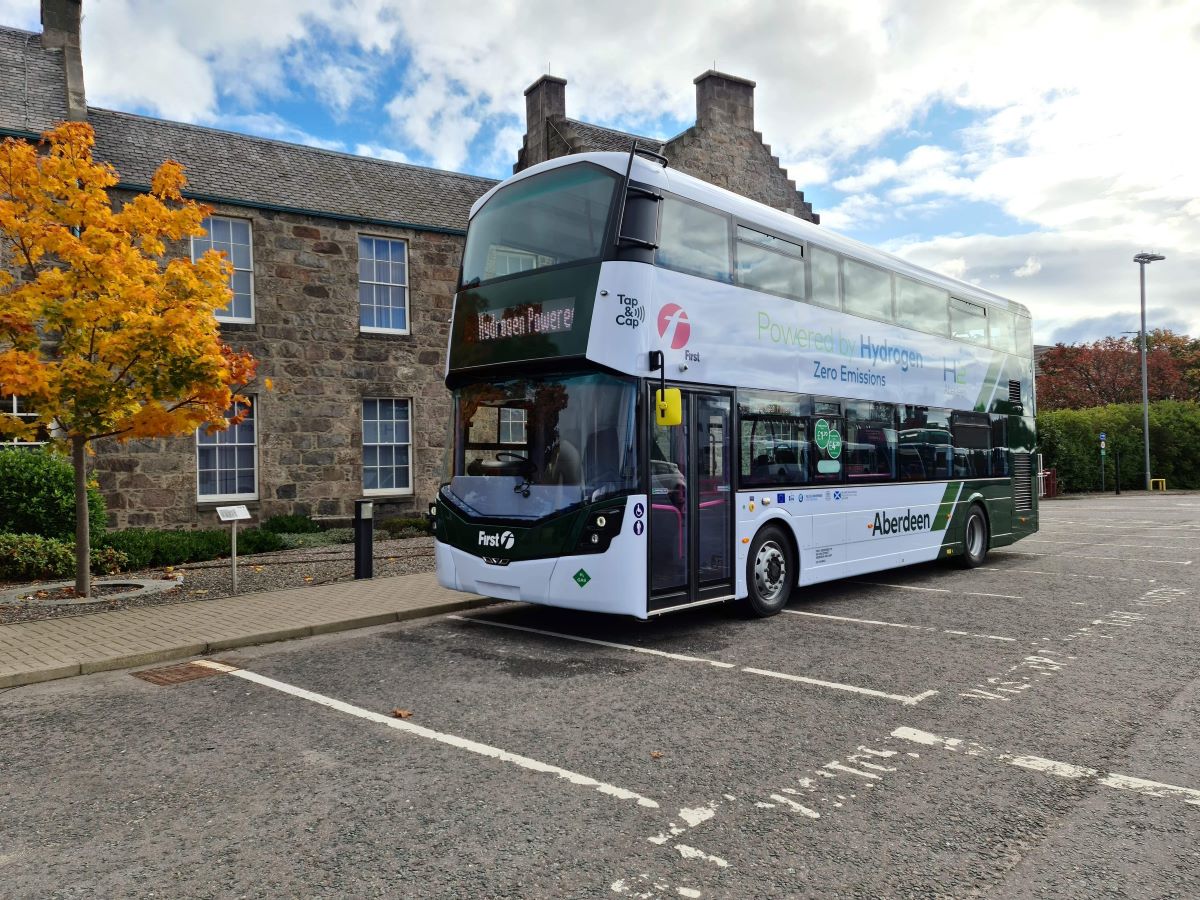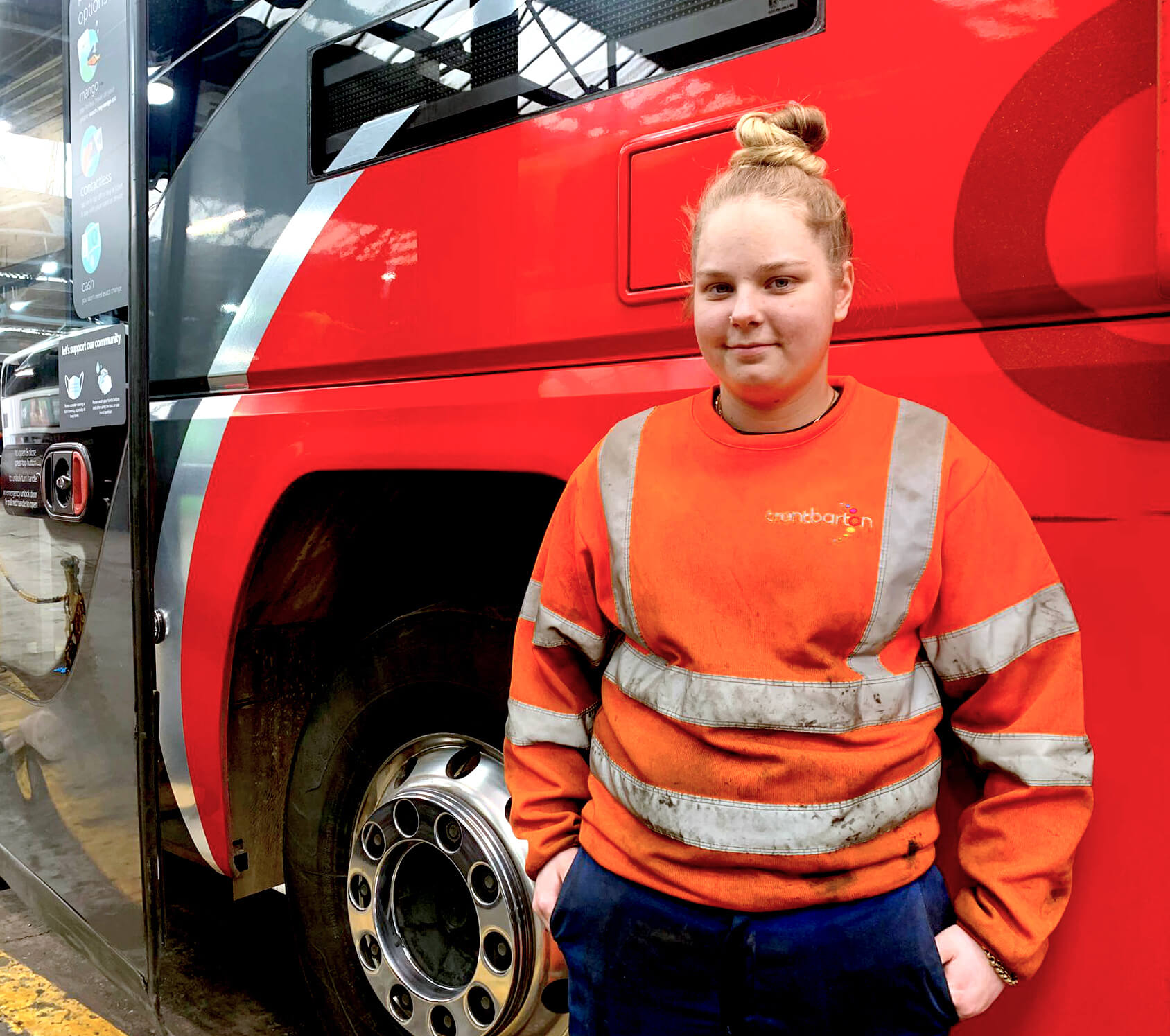A new report from Hydrogen UK has highlighted the lack of hydrogen refuelling stations (HRS) and called on the Government to invest in infrastructure to meet zero-emissions targets.
The move away from fossil fuels for bus and, particularly coach, is likely to be hampered by the slow progress on refuelling points, with the UK having just six HRS — one for every 400 miles of motorway, according to the report.
The Hydrogen Transport Benchmarking report, published by the Transport Working Group, also notes the UK is performing well in fuel bus deployment in comparison to other modes of transport, due largely to the Zero Emission Bus Regional Areas (ZEBRA) scheme.
The countries analysed by the report — UK, France, Germany, Netherlands, Norway, Switzerland, Japan, South Korea, China, United States of America, Canada and Australia — were chosen along with the European Union (EU) as they are deemed to be comparable with the UK as regards technological development, economic strength and hydrogen ambition.
The research found the UK to rank 11th out of the 12 countries and the EU in terms of fuel cell electric vehicles (FCEV) per HRS — at 75, compared to six in Switzerland, which was No.1.
South Korea leads the way when it comes to HRS per kilometre of motorway — at 43 versus 643 for UK.
With battery electric likely to be less of an option for coach operators due to lack of range, hydrogen is seen as more important, although concerns will remain over refuelling points. The research reported that most UK stations had dispensing capabilities of less than 100kg/day, enough to cater for only 20 passenger vehicles and thus not well suited for coach and bus.
The report urges Government to “publish a Hydrogen in Transport strategy cutting across all the modes of transport enabling synergies to be identified and built upon” and boost the number of HRS by 2030 to 200, each with 1 tonne per day capacity.
UK strong on hydrogen-powered buses
UK fares better when it comes to the number of buses that are hydrogen-powered. The number of FCEV per thousand is 0.52, which is enough to rank fifth of the countries researched, although well down on South Korea at 82.28.
The report notes the ZEBRA scheme “has been effective as it allowed the option of choosing fast-track option or standard process and allowed for local authorities to bid into the process if they passed certain requirements.” It adds: “This gave local authorities flexibility in choosing the technology and infrastructure that suited the local environment and choice in how to spend the funds.”
Another recommendation of the Transport Working Group was to “Ensure a portion of the targeted 4,000 UK zero-emission buses by 2025 are FCEVs to give bus and coach operators a range of viable alternatives.” It also called on the Government to “help develop depot-based hydrogen refuelling to regional authorities.”
Allan Rushforth, Chief Commercial Officer at First Hydrogen, said: “It’s valuable that Hydrogen UK has gathered input from industry participants who are on the operational front line and can provide an accurate view of the challenges and opportunities hydrogen adoption presents. The UK urgently needs to develop a national Hydrogen Transport strategy if it wants to deliver the opportunities of job creation and economic growth that the sector offers.
“Successful deployment requires coordination between transport networks and energy production, together with a combination of H2 refuelling on trunk roads and at zero emission fleet depots. Without this, hydrogen ecosystems such as Tees Valley and urban Ultra Low Emission Zones will not deliver the potential boost to regional and national growth, or indeed net zero target achievement, that can be achieved with greater engagement from Government.”
Andy Walker, Technology Market Insights Director at Johnson Matthey, said: “The UK got off to a great start in the clean hydrogen race, but now needs to accelerate urgently to avoid being left behind as other nations start to implement their national hydrogen strategies and provide policy support. This Hydrogen Transport Benchmarking Report provides an excellent overview of the progress made worldwide in using hydrogen as a transport fuel and highlights the need for the UK to do more in this critical area if we are going to be serious players in what will be a very large global market as clean hydrogen plays an increasingly major role in the decarbonisation of transport going forward.”



























